On one hot day in May, LA Hanson, who served as an Army medic during Desert Storm in the 1990s, attended a Clemson baseball game. It was a new place for her, with an abundance of people and an overwhelming amount of bright lights and loud noises, a combination of things that she hadn’t handled well since the war. She knew it was coming, but so did Brewster. Eventually, it happened. She suffered a seizure. What saved her life, like it had many times before, was her service dog, Brewser, a dog who was trained by Clemson students to save her life.
However, Clemson University recently updated its service dog in training policy, making it difficult for service dogs like Brewster to be raised at Clemson.
The new policy requires that all service dogs in training have proof of Canine Good Citizens Advanced Certification (or equal training), which is offered through the American Kennel Club. It also requires that all dogs be registered with the University each semester, a request that the school can deny.
Understanding the new requirements
The goal of the Canine Good Citizens certification is to evaluate dogs in simulated, everyday situations, according to the Animal Humane Society. It also requires the dog to be tested by an American Kennel Club-approved Canine Good Citizens evaluator, be registered with the AKC and already have a CGC title on record.
Clemson Battle Buddies is a club that places 8-week-old puppies with students who, in turn, raise and train service dogs for veterans. It is one of the organizations that is affected by the University’s new policy.
An executive member of Battle Buddies expressed to The Tiger that there are multiple logistical issues that come with the new requirement.
If Battle Buddies maintains its 10-puppy litter, it would cost an additional $7,734.30 to obtain the certifications to meet Clemson’s new policy, excluding all the already-existing medical bills, supplies and food, the executive member added.
Additionally, the closest AKC-accredited training facility to Clemson’s campus is in Donalds, South Carolina, which is roughly an hour’s drive away from campus.
“We are all full-time college students doing this out of respect for these veterans,” a member of Battle Buddies said. “We don’t have the money or time to drive an hour away for training weekly.”
Clemson explained its rationale for the new policy to The Tiger in an email.
“The guidelines were written in part to protect the access for service animals providing assistance to those with documented disabilities on campus,” Clemson spokesperson Joe Galbraith told The Tiger. “We have spoken to many students with disabilities on campus and heard their concerns and complaints about service animals in training and how they interfere with their service animals.”
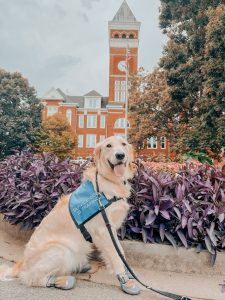
However, Battle Buddies is adamant that these new requirements will be the end of their services at Clemson.
“Having to get American Kennel Club registered, taking the AKC Canine Good Citizens test and then taking the Advanced AKC CGC test will be detrimental to our program,” the Battle Buddies executive told The Tiger. “Clemson is fully aware that we train under an accredited facility weekly, and our dogs take the CGC and Public Access Test, even though the Americans with Disabilities Act does not require it.”
Galbraith told The Tiger that “there have been efforts to assist groups on campus in gaining access to free training certification.”
The Battle Buddies executive was aware of this offer but told The Tiger that there were serious ethical complications with that process. Some of those complications involve Clemson Guide Dogs, an organization that provides service dogs to the blind and visually impaired.
The Battle Buddies executive member explained that the University provided Guide Dogs with a list of AKC evaluators who offered to charge a discounted rate for their services. These evaluators offered not to register the dogs with the AKC but to still provide the dogs with the paperwork to meet Clemson’s requirements. This offer made Battle Buddies uncomfortable because it would violate the evaluators’ contract with the AKC, which mandates that all evaluators register tested dogs with the organization, the executive member explained to The Tiger.
Clemson Guide Dogs has over 300 members and plans on continuing to grow as a student organization this year, with the goals of educating the public on service animals and advocating for service dog handlers. The organization also has two puppy raisers who are hindered by Clemson’s new policy, Ashlyn Wells, an executive member of Guide Dogs’ leadership, told The Tiger.
The value of service dogs
If Clemson’s new service dog in training policy remains as is, Battle Buddies will likely stop raising puppies, and veterans like LA Hanson could suffer.
Hanson explained to The Tiger how important Brewster is to her everyday life.
“Brewster has impacted my life in many ways. He provides companionship and security while I’m in public by doing his job, blocking, covering, etc. More importantly, he has alerted to four seizures. His alerts help me get into a safe position/area before seizing. He also covers on top of me until it has ended,” Hanson explained to The Tiger.
“My ‘golden ray of sunshine’ greets me in the morning, giving me a reason to get out of bed,” Hanson added.
Hanson is not the only veteran who has benefited from Battle Buddies’ efforts at Clemson.
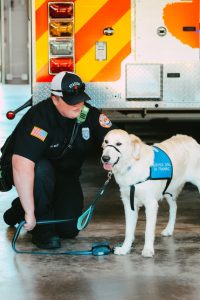
Wesley Meno, who served in the United States Army on active duty from 2011-2015 and received his service dog Brooks through Battle Buddies, shared his story with The Tiger.
“Brooks acts as my helper in alleviating feelings of anxiety and hypervigilance in public, but mainly helping me get out of the house on my own without the assistance of my family.
“At the end of many long, exhausting days, when he lays his head in my lap, it’s great to know I have a partner that will be there for me and love me no matter the kind of attitude nor how sad I feel,” Meno told The Tiger via email.
Meno also shared his distaste for Clemson’s new policy.
“It’s irresponsible that a policy was put in place without approaching veterans with service animals or any veteran affiliated organization, and is also a great disservice to our veterans, Meno told The Tiger. “For a university that will go out of its way to tout military heritage, this is not the way to maintain its commitment to veterans.”
Luke Baunack, a U.S. Air Force veteran, also received his service dog, Katie Mae, from Battle Buddies.
“She (Katie Mae) helps me up and down stairs, bracing for me so I can manage the steps better. Plus, she senses subtle changes in my blood pressure or heart rate and alerts me—nudging, barking, licking my face—enabling me to mitigate panic attacks,” Baunack said in an interview with The Fairview Town Crier.
“Since getting Katie Mae, I’ve been able to do all sorts of things I never could have attempted a few years ago,” he said. “That’s why I support Battle Buddies. They helped me get Katie Mae, and she helped me get my life back.”
Hanah Catoe, although not a U.S. veteran, still struggled with mental health issues and also received a service dog, Dakota, from Battle Buddies.
Catoe started out as Dakota’s puppy raiser so that she could learn how to train a service dog of her own, but once the organization learned of her hardships, it donated Dakota to her.
“Before Dakota, I was suicidal. I didn’t want to live,” Catoe told The Tiger. “ Now that I have Dakota, everything is changed. If I never received Dakota from Battle Buddies, I might not be here today. He is essential to my daily routine.”
The legality of the policy
Not only will Clemson’s new policy severely hinder service dog in training organizations’ operational functions, but the policy appears to blatantly contradict South Carolina state law.
In South Carolina, state law allows a service dog in training the same rights to enter a place of public accommodation. Under this law, it is illegal to treat service dogs in training any differently than service dogs.
Under Clemson’s new policy, service dogs are not required to be registered with any external organization or pass any behavioral test. Additionally, service dogs, although encouraged, are not required to be registered with Clemson’s Student Accessibility Services.
The Battle Buddies executive told The Tiger that she also spoke with a South Carolina disability attorney who explained to her that Clemson’s actions were illegal.
The University did not comment on the legality of its new policy.
Importance of college campus
Both Battle Buddies and Guide Dogs expressed to The Tiger the importance of having access to a college campus to raise service dogs.
“College campuses provide irreplaceable training and exposure to service dogs in training,” Wells told The Tiger. “We are preparing them to be able to walk through crowds and to settle for longer periods of time, which are two very important skills for a guide dog to have.”
“Working with Clemson Students the last 4 years has provided the ultimate training experience for our puppies,” JoAnne Creed, Battle Buddies’ co-founder, explained to The Tiger via email.
Battle Buddies also emphasized the importance of Clemson to the program’s success.
“Working with Clemson the last 4 years has been a blessing to our organization. Our organization would not have grown as much as it has without our collaboration with Clemson,” Creed said.
“Clemson has been a huge blessing when it comes to providing puppy raisers to Battle Buddies. The vast majority of puppy raisers come from Clemson University,” Catoe said. “Without this aid, we would not have the ability to provide this free service to those who fought for our country.”
Puppy raiser experience

These service dogs not only impact the lives of the individuals who receive them post-training, but they also affect students’ Clemson experience.
“Having a service dog in training made my Clemson experience more than I ever expected and brought me the most joy I’d ever had,” Elizabeth Atchison, a graduated Clemson puppy raiser, told The Tiger.
“There is such a great community of puppy raisers at Clemson, which has helped me feel more at home when I’m at Clemson,” Wells added.
“Our dogs unite Clemson students with alumni and bring so much pride to the military community. My greatest concern for Clemson is that they are limiting their scope and do not see that these puppies are an asset to their community and to their reputation,” Atchison concluded.


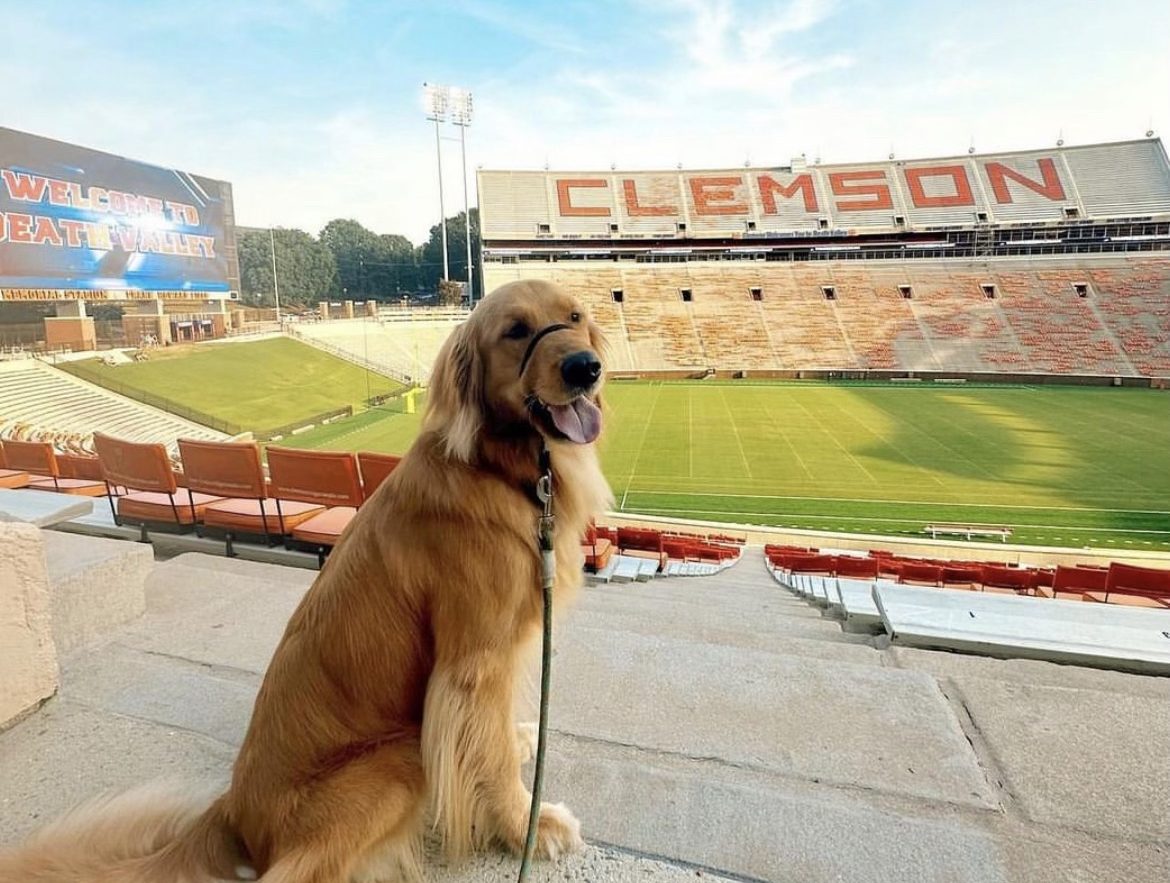

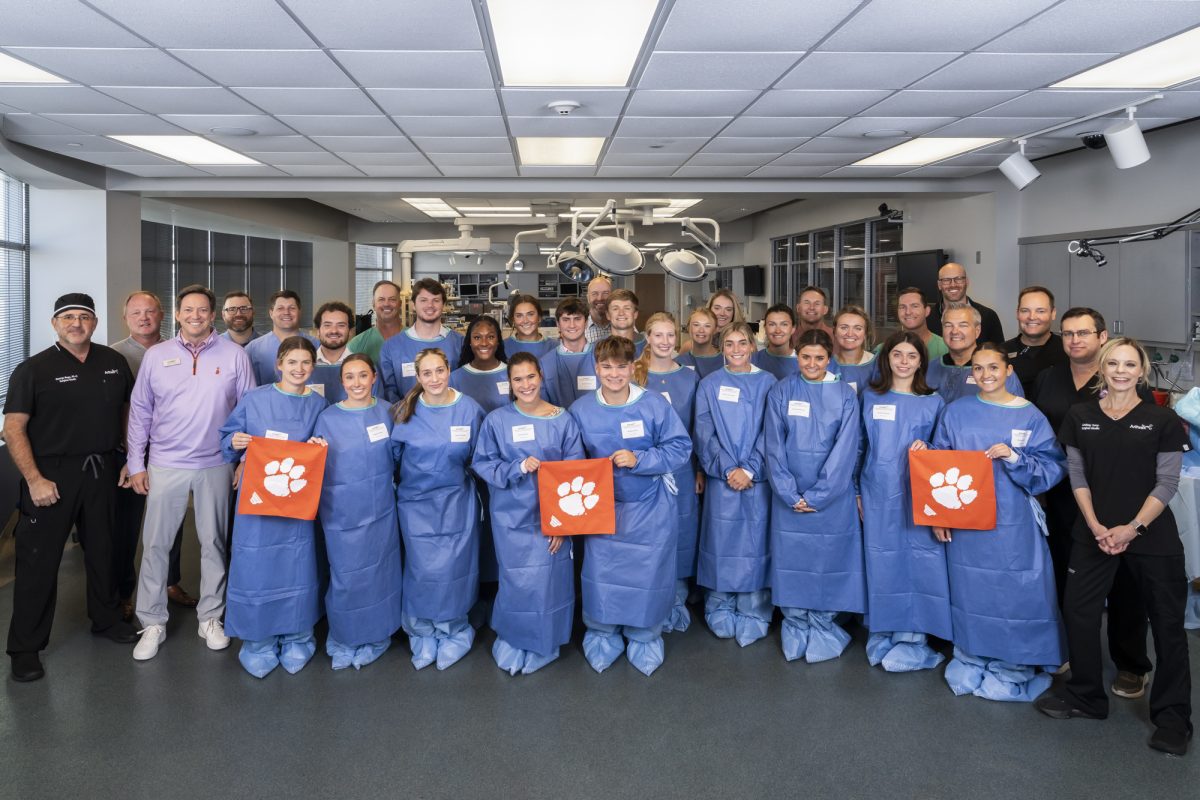

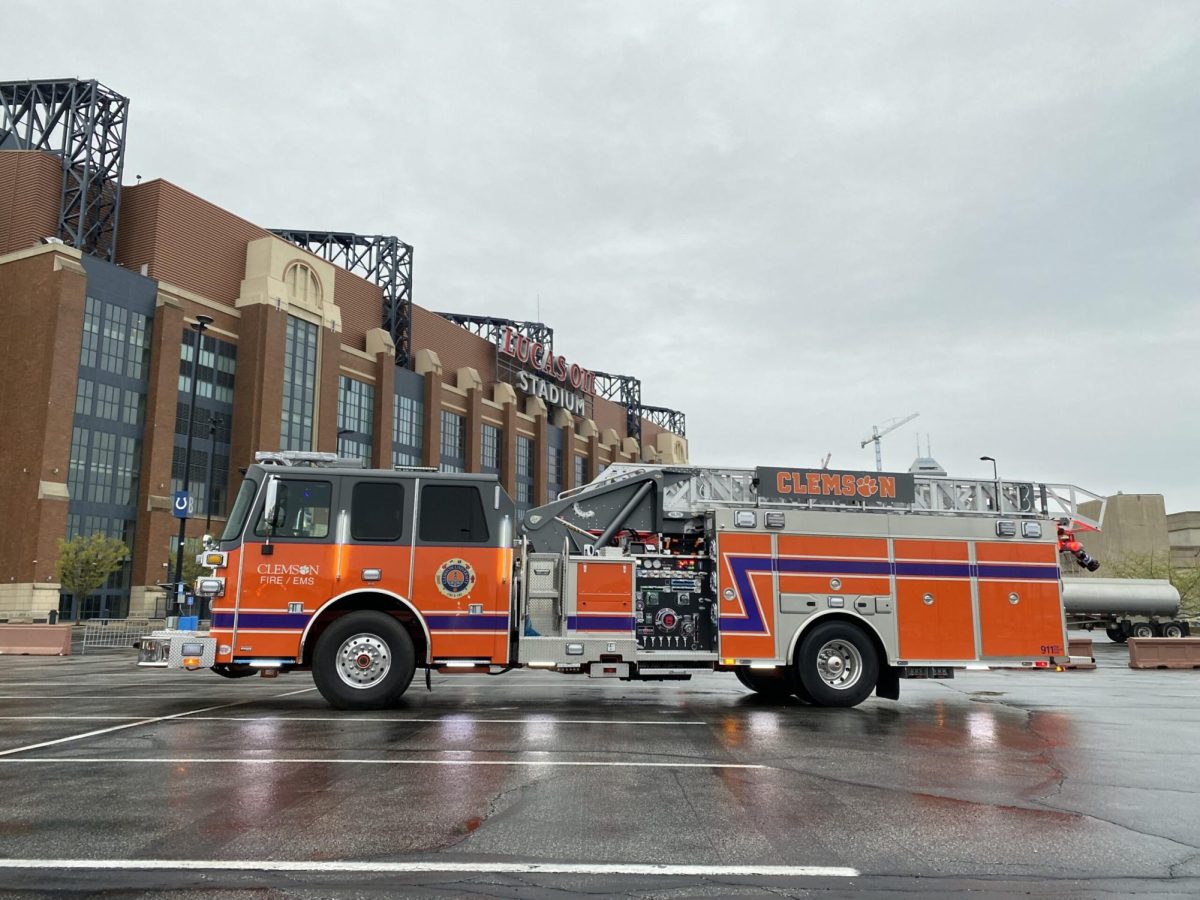
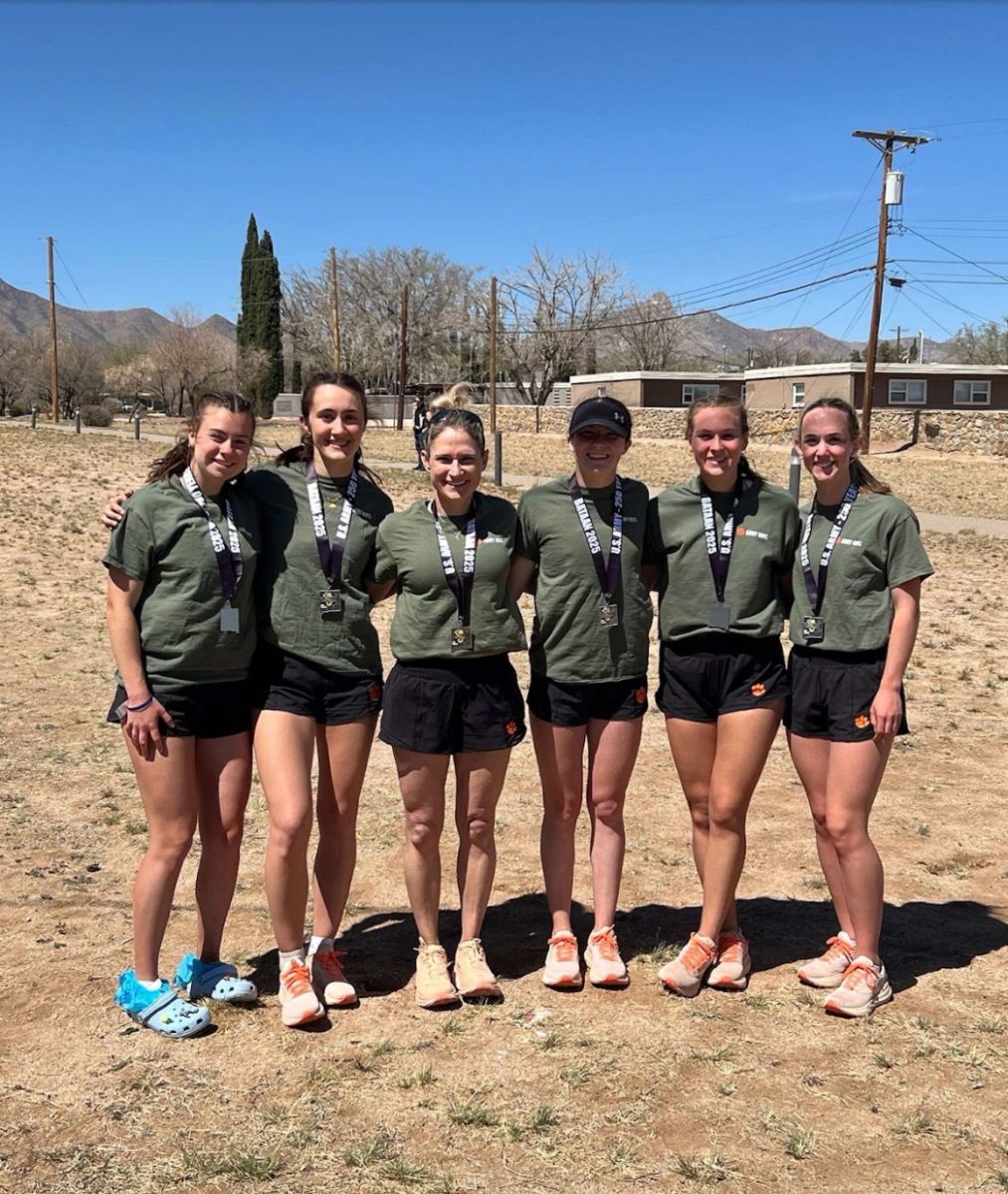



Joanne Powner • Sep 26, 2023 at 4:53 pm
This article is misleading. It’s an organization problem, it has nothing to do with veterans.
Other veterans and organizations were spoken to. Clemson is making their decisions based on experiences and protecting those actually covered under the ADA. Everything that is being claimed to be unattainable is not adding up mathematically, and some of these tests they’re saying these dogs pass don’t even exist. CGC should be no problem for any dog to attain that is going to be a service dog.
Service dogs take time and money, if you don’t have both you shouldn’t be doing it. Plus it’s a student organization which is extracurricular. If you are too busy with school to train a service dog properly for a disabled veteran, you are actually doing the veteran a disservice by giving them a improperly trained dog for them to depend on as medical equipment.
Sincerely a veteran
Joanne Powner • Sep 22, 2023 at 5:50 pm
Individuals with disabilities can train their own Service Animals. In South Carolina, state law allows a service dog in-training the same rights to enter a place of public accommodation. 5 Normally a service dog’s training involves training about behavior as well as the disability task or tasks it does f